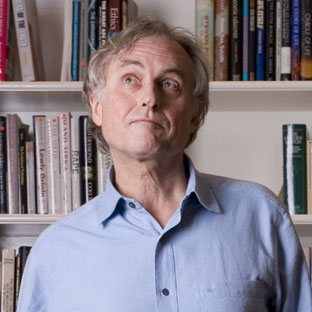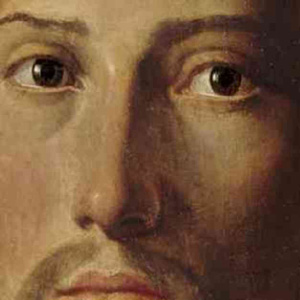
I used to be a Benedictine monk but I left, partly because prayer meant very little and partly because I was becoming increasingly aware of the immense damage that the Catholic Church has inflicted on humanity.
Now for quite unexpected reasons I find myself once again a fervent Catholic. To my great surprise, contemplation now means a great deal to me. I have a most vivid sense of Jesus dwelling in my heart – I know what that must sound like to a humanist – a source of daily joy. Of course I’m quite aware this may be no more than sexual sublimation or a disturbance of the temporal lobe in my brain, and on one level it must be that. But who would throw away a great treasure until it was shown beyond all reasonable doubt to be a fake? What do humanists make of somebody who claims a personal encounter with the mysterium tremendum of the universe? Plenty of other people would claim the same.
Along with Jesus a second profound influence on me was Dawkins’ Climbing Mount Improbable, especially the wonderful chapters about the eye, the spider and the fig wasp. Yet it has led me in a diametrically different direction to that of their author. Which of us is right? Atheists often seem to think like this: once upon a time humans couldn’t understand the mysteries of nature so they made up God somewhere beyond the sky to explain them, but science, starting with Galileo who was the first to abandon the nebulous theories of Plato and Aristotle and actually started experimenting, has explained them much better, so now there is no need for religion, at best irrelevant and at worst a toxic disease. This is a misconception.
Galileo was a devoted Catholic and an ardent neo-Platonic humanist. Atheists have been misled by Paley and his watch. In Catholic theology God is not outside being but within it. “God is within the universe and that innermostly,” wrote Aquinas. For the Renaissance humanists this indwelling of God in the world was essentially mathematical and mathematics was inseparable from beauty. Think of a picture by Cezanne. It’s not Cezanne himself, but you know immediately it’s not a Picasso. It is full of his style, his personality, something of him. “The Word was with God and was God,” wrote St John. His word for Word is the Greek logos which means the rationality of the universe. You could almost translate it “Mathematics is both God and not God”. God is the universe in its deepest place.
Paley’s God is incompatible with science. But I can see nothing in science that denies a cosmic intelligence giving meaning to the universe. Aquinas would have loved Darwin just as he adored the atheist Aristotle. “The most incomprehensible thing about the universe is that it is comprehensible,” wrote Einstein. Either this extraordinarily intelligible universe is just unintelligibly there or it is the expression of a cosmic intelligence. The latter option is, to say the least, just as rational. The issue has been sharpened by our discovery of genes, so apparently purposeful in their behaviour you cannot talk of them in any other way. Dawkins uses “the language of purpose” the whole time. But, obviously, these tiny scraps of matter can’t be purposeful. If you think there is no purpose in the universe you are driven to say “when I say purposeful I mean purposeless”, as I think Dawkins does, and to write purpose as “purpose”. He ascribes powers of agency to genes that they could not possibly have.
To me that’s literal nonsense. A cosmic meaning welling up from somewhere far, far deeper than the quarks of our present discovery makes more sense to me. The core belief of religion is that there is an incomprehensible and unimaginable dimension of reality beyond the one we presently know. I’m totally enthralled by contemporary physics; non-locality, sums over histories, wave/particle duality, backwards causation, an infinity of universes, all mathematically cogent but quite beyond our capacity to understand them in any other way. I’m starting to wonder if science is beginning to discover what religion has always known.
None of this, though, annuls the wickedness of the Catholic Church, and if this were all there was to it I would not love it so much. The two most potent forces in the world are science and religion, and for that very reason evil people are always going to strive to get hold of them. There would have been no atom bombs or Zyklon B without science. By the same token, ever since Constantine the Church has been captured, with a few glowing exceptions, by a self-perpetuating gang of scoundrels. Yet, O wonder of wonders, under the impact of the clerical abuse crisis is the monolith beginning to crack? The meaning of the universe, if there is a meaning of the universe, certainly moves in strange ways.
Perhaps Catholics have something to offer humanists, who often, it seems to me, misunderstand why intelligent religious believers, among whom I count myself, believe. Doubtless humanists too have their downsides. But would it be impertinent to say that at their best I admire them for their purity of intention and independence of mind, qualities of which the corrupt old Catholic Church is sorely in need? Can you imagine a Catholic journal inviting a humanist into its pages to criticize Catholicism? I’m really eager to enter into a dialogue with humanists. I’m expecting some robust responses. Don't disappoint me.
Thomas Jackson is author of Richard Dawkins Is Wrong About God Because S(h)e Doesn’t Exist, recently published on Amazon Kindle. Information at www.thomj.co.uk

